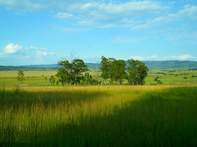British and Boer Name Changes
Newcastle has played an integral part in South Africa’s history. After the establishment of the Colony of Natal by the British and the Boer Republics of the Free State and Transvaal in the 1840’s and 50’s, the wagons of transport drivers carved out definite routes between these areas.

The Post Chaise also made its appearance and regular halts after a long day’s trek or ride were established. The area of Newcastle was such a place and known as Number II Post Halt.
Soon afterwards, the few scattered huts became known as Waterfall River Township. The town was laid out in 1854 by Dr. Sutherland, the later Surveyor-General of Natal. In 1864 when the first lots were advertised, the township was named Newcastle, after the Duke of Newcastle.
For a period of eight months during the Anglo-Boer War of 1899-1902, the town was occupied by the Boers who renamed it Viljoensdorp, after General Ben Viljoen, commander of the Johannesburg Commando. With the re-occupation by General Buller of the British forces the name was reverted back to Newcastle.
Winston Churchill in Newcastle
Over the years, a number of famous people have had connections with Newcastle, Winston Churchill being one of the best known. Winston Churchill came out to South Africa during the Anglo-Boer War in 1899, as war correspondent for the Morning Post newspaper in London.
On 15 November 1899 he was taken prisoner near Chievely, close to Colenso, during an ambush when a British armoured train was derailed by the Boers. He was then marched with other prisoners to Elandslaagte station, where they were put him on a train to Pretoria.
It is said that during this trip, the train stopped in Newcastle and Churchill slept over at the Armoury building in Hardwick Street where the MOTHS are situated today. Churchill was imprisoned at the “Staatsmodelskool” in Pretoria, where he escaped on 12 December 1899.
These and subsequent events were to take the form of an epic adventure story, and turn Churchill into a popular hero. He rejoined the British forces and witnessed the Battle of Spioenkop and fall of Pretoria in 1900. Churchill later became Prime Minister of Britain, twice.